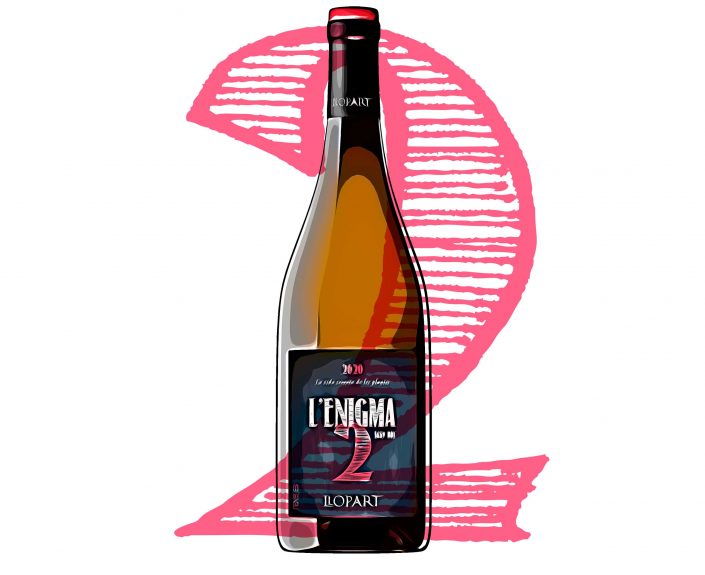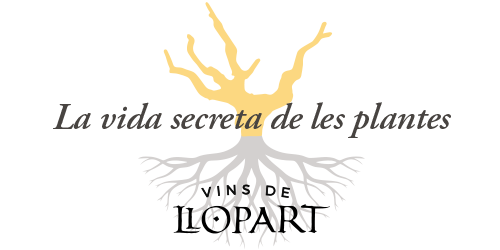
The Secret Life of Plants is a project that involves the creation of still wines and must by the Llopart Winery.
With this concept we wish to convey our admiration for the mysterious world of plants: living beings with sophisticated and fascinating sensitivities, strategies and mechanisms allowing them to adapt to their environment.
L’Heretat Can Llopart de Subirats, with its 100 hectares of mountain vineyards and 400 hectares of Mediterranean forest and wild vegetation, forms a balanced, high biodiversity, agroforestry ecosystem, which helps us sustain the healthy and dynamic development of our vineyards in full harmony with the natural environment.
Clos dels Fòssils
Grape variety: Xarel·lo.
Depth and smoothness.
A fusion of fruit with toasted notes
from its fermentation in Allier oak
barrels with a touch of acacia.
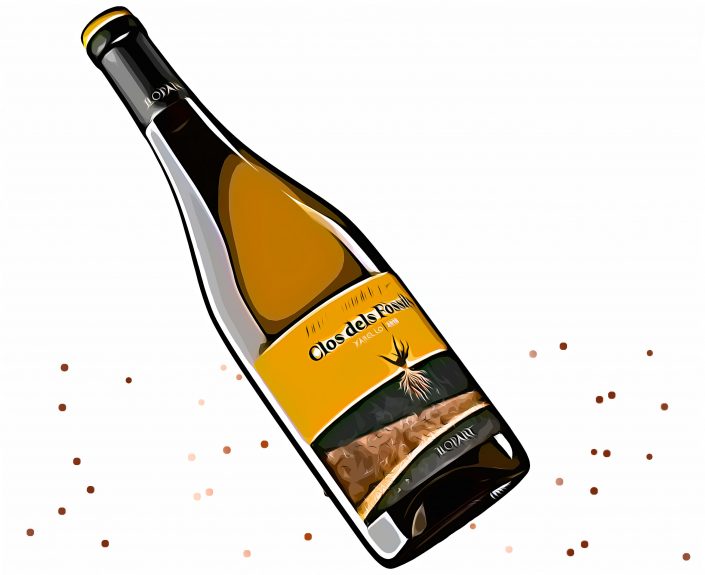
The Wine
A harmonious and subtle fusion of barrel fermentation and fruit
grown in vineyards planted in a Miocene subsoil which is blessed with an abundance of marine fossils.
The Vineyard
Vinya del Rosendo (2002) Xarel·lo which can be found in the Clos dels Fòssils area of the Heretat.
Terroir with a thin layer of siliceous clay where a stratum of rocky limestone emerges with bountiful marine fossil remains, forming terraces and slopes oriented to the Northwest.
Production: 4,500 kg of grapes per hectare.
The Secret
Plants are the only living things that make their own food. They produce organic material from water, carbon dioxide and minerals found in the environment. Roots, in addition to anchoring the plant, are collectors by absorption of the materials found on the land where they find themselves and, at the same time, accumulators of nutrient reserves to enable the plant to face periods of stress. The vine operates like an alchemist, bringing back to life minerals from fossilized organisms in the subsoil of our terroirs.
“Vines rooting in, nourishing and assimilating the calcareous subsoil,
sown with fossils from an ancient 16-million-year-old sea.”
Vitis
An energetic dance of flowers and fresh fruits that conveys us to the origin of the wine: the grapes.
A seductive combination of varieties that offer a broad aromatic and gustatory experience, that is difficult to forget.
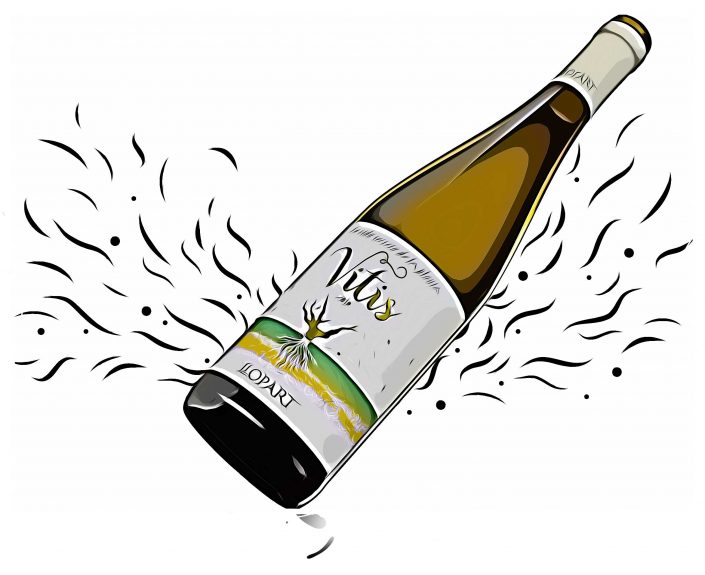
The Vineyard
Vineyards located in the central area of the estate, belonging to the Clos dels Costers and the Clos del Rocallís.
Xarel·lo from Simón’s vineyard (2004).
Malvasia de Sitges, from Lluís vineyard (2008).
Muscat from La Torrota vineyard (2001).
The Secret
Vitis Vinífera is a plant from the Vitaceae family, which has evolved through developing characteristics associated with shrubs and fruit trees. The master formula that plants use when making fruit basically contains water, sugars, acids and hundreds of fixed and volatile molecular compounds, all elementary rewarders for sensory receptors. In the different varieties of grapes we find a broad and lush array of aromas that evoke floral, citric, tropical, aromatic or spicy connotations.
“Vines capturing solar energy and making plant essences.
Vines blessed by the exceptional nocturnal
thermal contrast of Heretat Can Llopart de Subirats.”
Carmí

The Wine
Two historic varieties, Sumoll and garnatxa, breathe life into this rosé wine aged in ceramic vessels.
Intense in colour and delicately fresh on the palate; this wine revives the stature of the Penedès rosés.
The Vineyard
Vineyards located in the Clos dels Costers, the highest area of the estate, formed by terraces minimizing the differences in levels.
Sumoll from the Alzina vineyard (1980) and Grenache from the Clot de les Arnes (1999) and the Silet vineyard (1980).
The Secret
Fleshy fruits are the sophisticated medium developed by many plants in order to better disperse their seeds. They compete with other plants to attract the appetite of animals, using them as transporters and dispersers of the seeds away from the mother plant, in favour of conquering new territories. To attract the animals’ senses, in addition to pleasing flavours, the different strains synthesize seductive vegetable pigments in the skin of the grapes, in the red-violet range, known as anthocyanins. These are most striking and cause the plant to stand out in the environment.
“Vines coloring their seductive fruits.
In chromatic harmony with the lush natural environment.
Wine refined in clay vessels.”
Vi·brant
Rosé wine of weightless bubbles.

The Wine
Vi·brant is a rosé pearl wine, from handpicked Xarel·lo Vermell grapes, made with a single fermentation finished in the bottle which allows it to keep subtle, spontaneous and delicate bubbles, hence the name pearl wine. The wine begins its fermentation in a stainless steel tank and then it’s bottled right before it finishes in order to end the process within the bottle.
These endogenous bubbles help preserve its identity of a natural wine of minimal intervention.
The Grape
Xarel·lo vermell, a very rare pink variety that Llopart has been recovering during the last years, is the protagonist in the mono-varietal Vi·brant. This grape of pinkish skin, the outcome of an evolution of traditional xarel·lo, grows on three terraces of organic mountain vineyards almost at 400 meters above sea level.
El Secret
Els nostres ceps són hàbitat i reservori dels llevats indígenes que acompanyaran el madurar del fruit, a l’espera del moment en què, aprofitant l’energia ensucrada del most, faran d’alquimistes de nous beuratges amb esperit vibrant.
L'Enigma 3
At Llopart we have set ourselves the challenge
of making a different wine every year.
A wine that will be surprising and enigmatic, that will
stimulate all the senses.
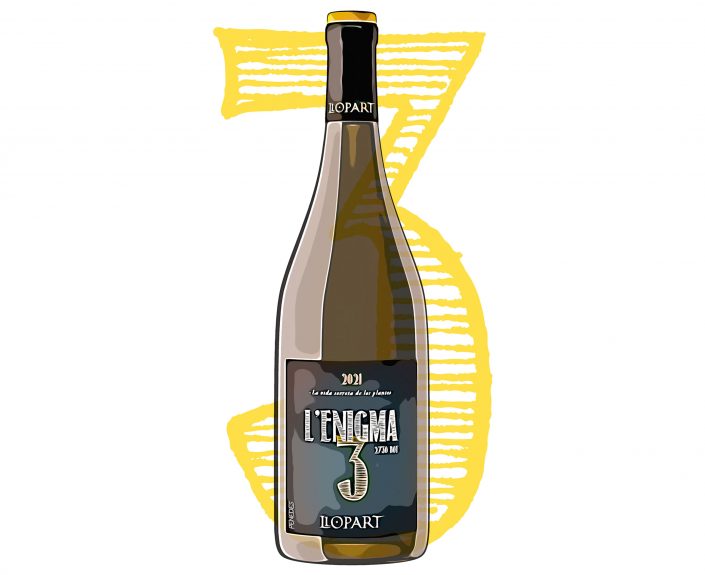
The Secret
All wines offer enigmas that need to be deciphered. Every sensory stimulus we receive when we enjoy a wine is an invitation to immerse ourselves in the profile of the terroir, in the climatological data, in the viticultural practices and in the cultural and oenological knowledge that have made it possible. The main perceptual notes of a wine are a gift from the different strains. We are the beneficiaries of a magical transmutation of inorganic matter into delicious fruit.
“Ephemeral microvinification, the result of experimentation
and dabbling with the grapes from the mountain
vineyards of the Heretat Can Llopart.”
The Enigma3 Game
Answer these 3 questions correctly and solve the riddle
Opinions
L'Enigma3 presents us with this high-altitude white variety. It is low in alcohol, which is pleasant. [In the glass] we wait a bit until the wine "wakes up" and shows us a range of flower blossoms, aromatic herbs, Mediterranean plants, and hints of citrus. In the mouth, we find texture and length. Compact and fluid, with a bitter, dry, and crisp finish. A pure treat.”
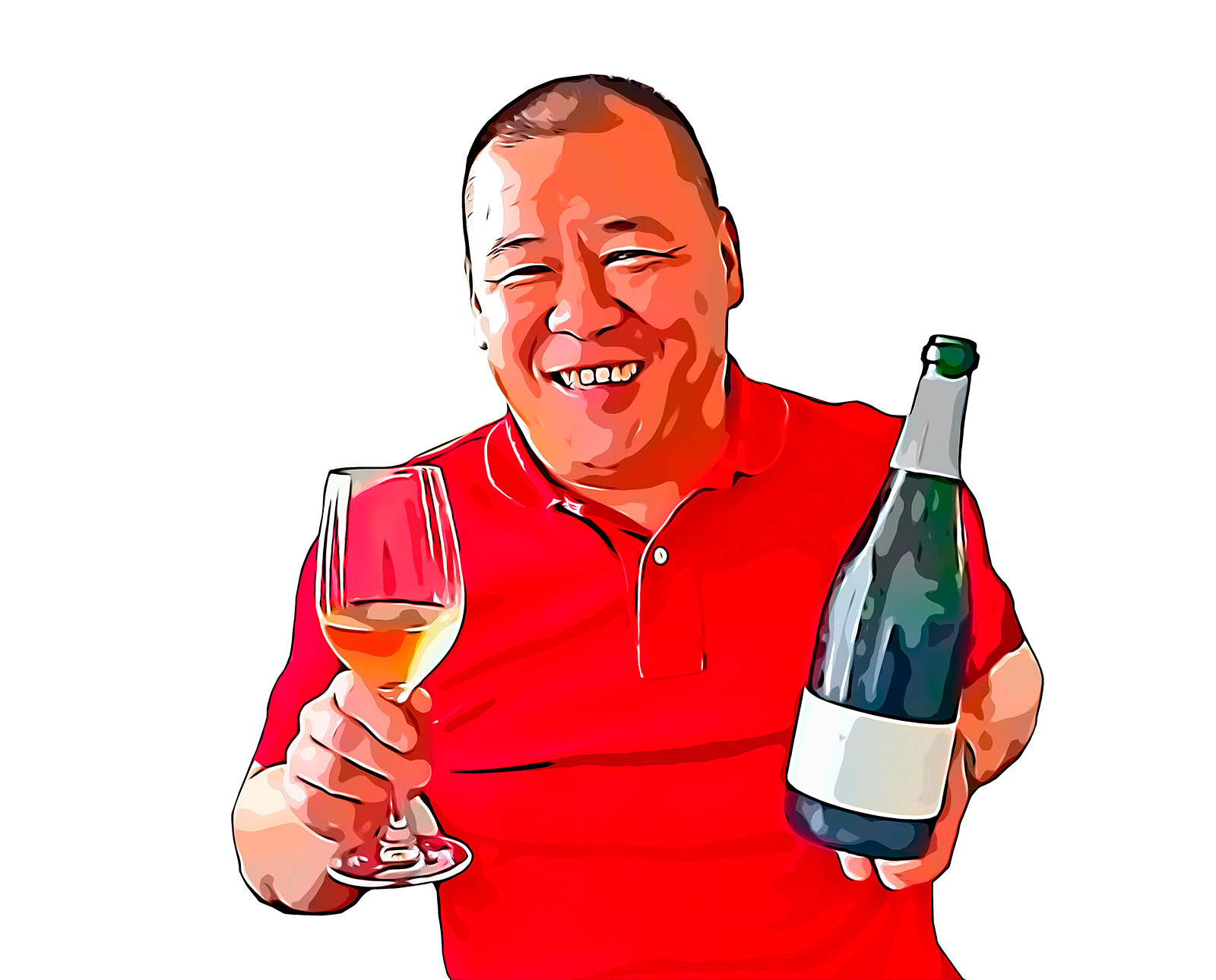
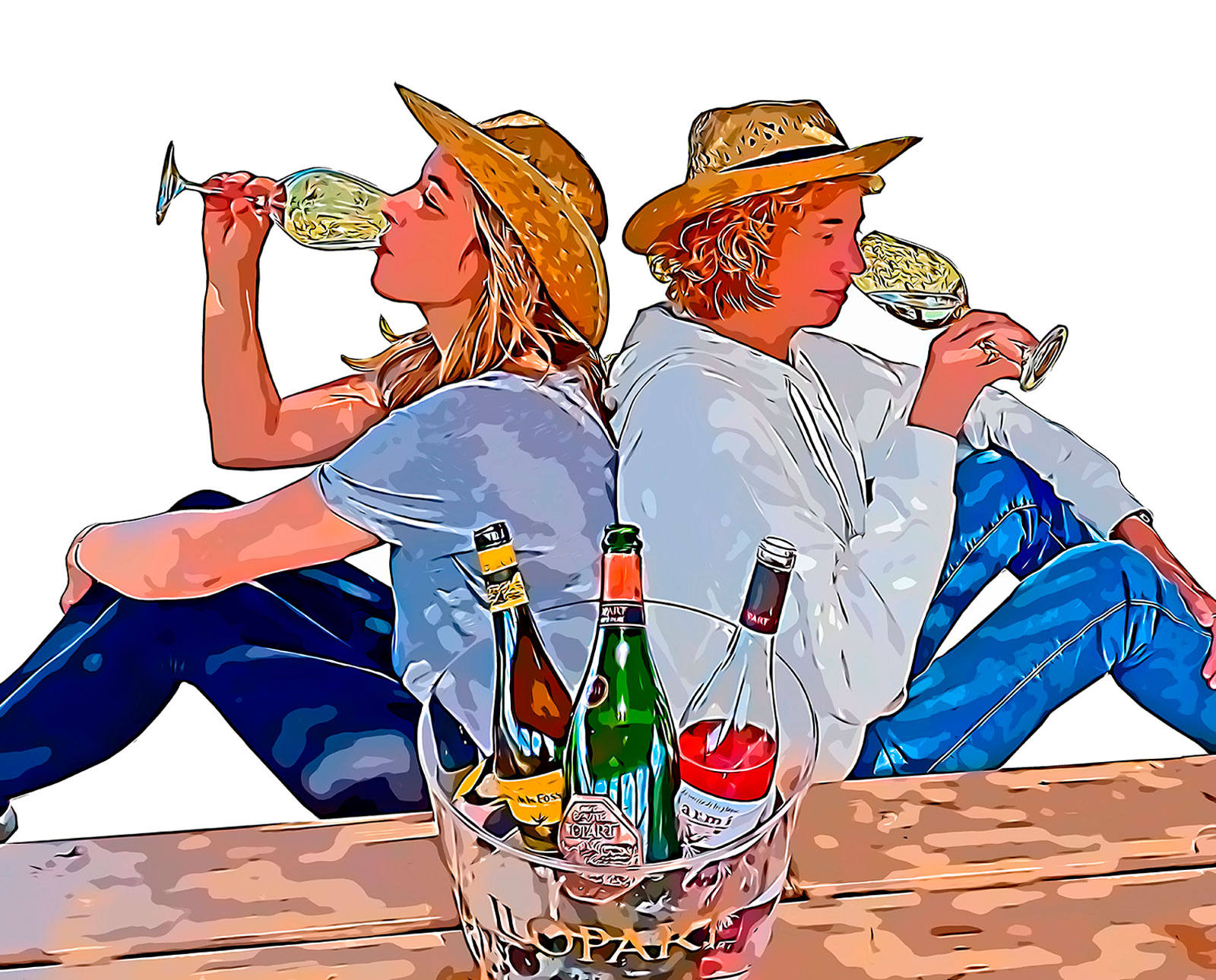
At first sight, this wine shows us a lot of light. It takes us to the Mediterranean warmth with its aromas of ripe citrus fruits, wrapped in sweet herbs and a background of lemon balm that leaves a very fresh sensation. We are definitely in front of a wine with 100% Mediterranean character, sincere and expressive.
Ideal to enjoy it with fresh and casual dishes.”
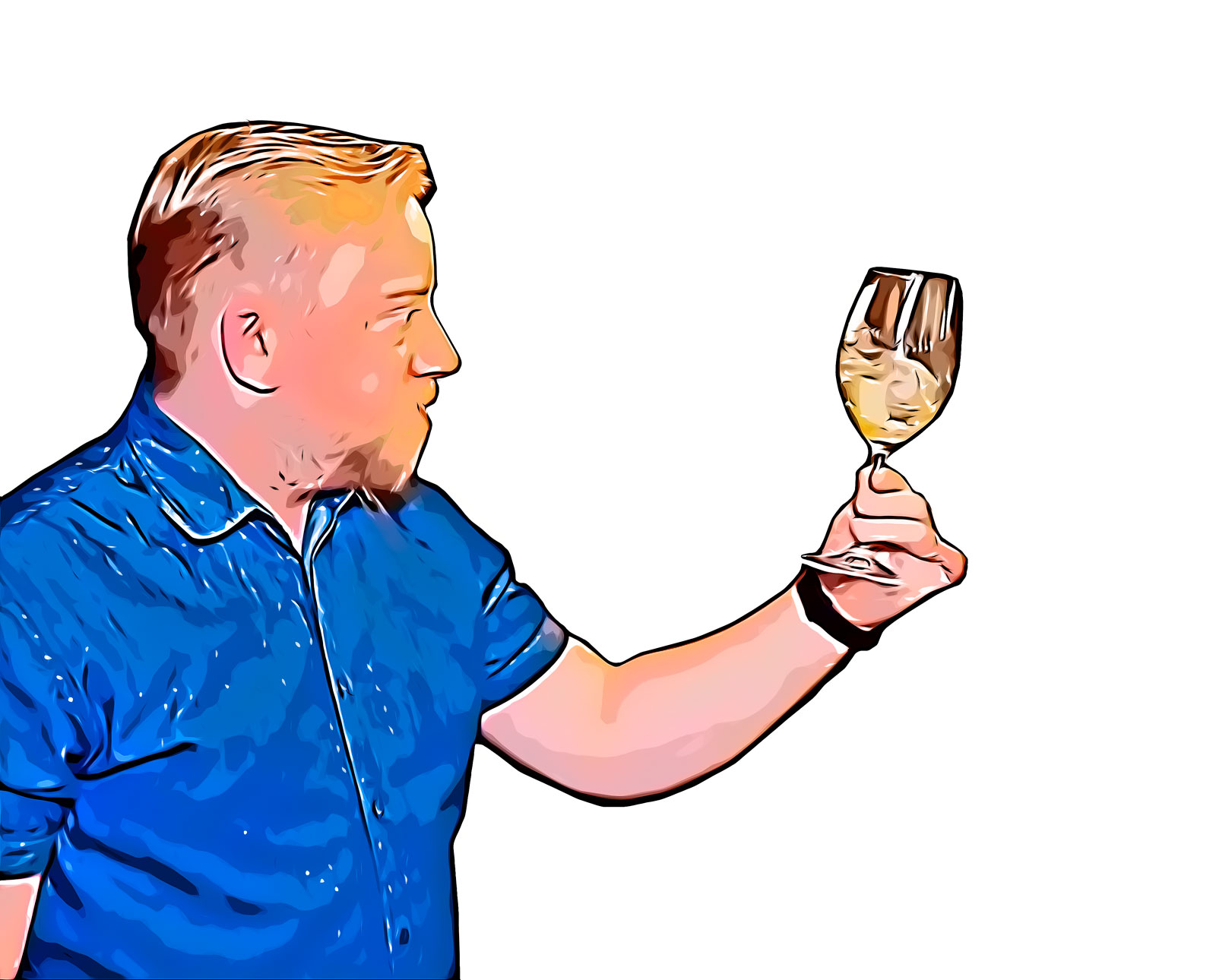


Every vintage is different: the rain, the wind, the drought… It seems that wine is the result of men’s hand, but it is, above all, the fruit of the wisdom of the vine.
L’Enigma3 presents us with this high-altitude white variety. It is low in alcohol, which is pleasant. [In the glass] we wait a bit until the wine “wakes up” and shows us a range of flower blossoms, aromatic herbs, Mediterranean plants, and hints of citrus. In the mouth, we find texture and length. Compact and fluid, with a bitter, dry, and crisp finish. A pure treat.
Lluís Kao (sommelier at Shanghai restaurant, Barcelona)

L’Enigma3 is a wine with a very Mediterranean spirit: notes reminiscent of underwood, aromatic plants, a balsamic touch of eucalyptus… a set of aromas that makes us think of Llopart’s mountain vineyards and the sea breeze that. In the mouth it shows a good acidity that makes it very fresh.
Imma Monclús y Juani Piñana (sommeliers at Licors Monclús, in Tortosa, and Can Piñana, in l’Ampolla)

This new enigma presented by the Llopart team is a great challenge.
At first sight, this wine shows us a lot of light. It takes us to the Mediterranean warmth with its aromas of ripe citrus fruits, wrapped in sweet herbs and a background of lemon balm that leaves a very fresh sensation. We are definitely in front of a wine with 100% Mediterranean character, sincere and expressive.
Ideal to enjoy it with fresh and casual dishes.
Gregori Albareda (sommlier at the wineshop Vinícia, in Lleida)

L’Enigma3 has a very bright pale yellow color. It presents aromas of ripe white fruit combined with citrus notes and floral hints. In the mouth, it expresses itself from the lightness, with very pleasant texture and stimulating acidity that serves as a backbone, sustaining the wine from start to finish and inviting you to continue sipping. In short, an honest, pure, and refreshing white wine, where less is more and that, due to its finesse and low alcoholic sensation, connects with one of the varieties that are a symbol of the identity of Llopart’s mountain vineyards.
Rafel Sabadí (sommelier at the winebar Uain Concept, in l’Escala)
The Enigma2 Game
Answer these 3 questions correctly and solve the riddle
Opinions


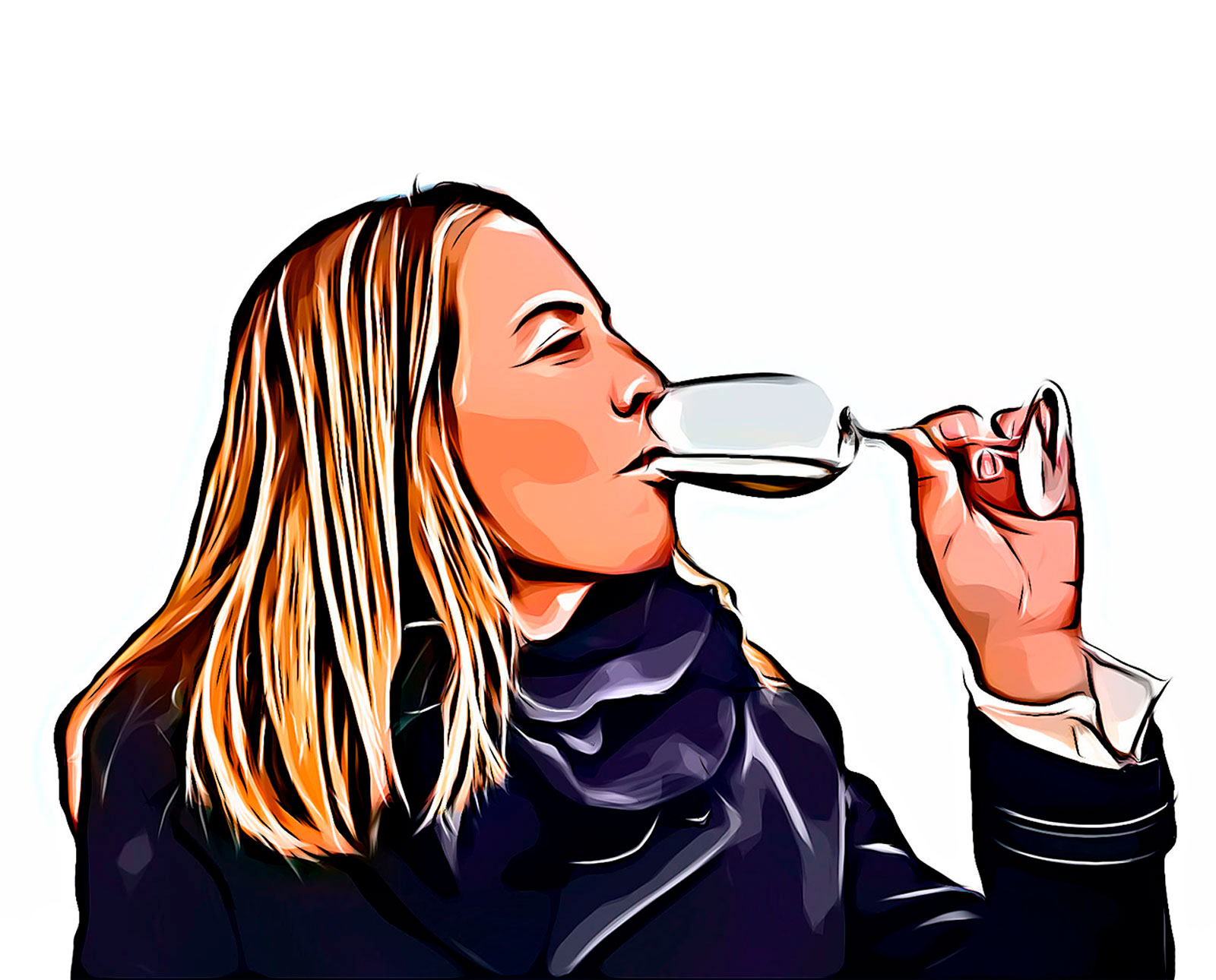


A unique rosé with a beautiful, delicate onion skin colour. Tasty white fruit and juicy nectarines. An inscrutable rustic touch. An enigmatic game that has one curious about the variety from which this new wine was created; which Llopart has expressly not revealed. A question mark that dominates the label. Initially, I thought it might be a red Xarel·lo, due to its rusticity. Its alcohol content, however, suggested that it may also be a red Grenache vinified in white with very little maceration, or even a grey Grenache.
Ramon Francàs

A wine that has its own hashtag seems to me to be a great statement of intent. It is also evocative of a great film: “The Secret Life of Words” by Isabel Coixet. As consumers, we love the singularity, uniqueness and beauty of authentic microvinifications. And even more so if they emerge from experimenting with grapes from the mountain vineyards of Heretat Can Llopart in Subirats del Penedès. A vegan wine that has come to stay, even if its blend is ephemeral and a limited edition; which makes it even more delicious. Especially this 12º one from 2019 with a run of 1,950 bottles that greet us with a question mark on the label. After all, it is true that each bottle is a blank sheet filled with sensations. As we slowly empty a bottle, it fills us with impressions. In the glass, its colour is also a riddle. Is it a rosé? Is it a white left in contact with the skins? A red xarel·lo? Whatever, it is an adorable and very instagramable peach skin colour. The nose has an aroma of peach along with a certain minerality, a hint of dried fruits and a sought-after oxidation, as well as a freshness due to it having been picked at the moment of its maturity.
On the palate it is still, but full of energy, although this is well focused on white fruit and strawberries. It fills the palate with freshness, as if the wine had been aged in amphora. This is also noticeable in the nose. It has a long finish due to its sharpness.
So, I’m not going to dare say what variety it is, although I think I know, but this is an ideal wine for a #winelover #winegeek & #winenerd as the result of a conscious viticulture and an oenology that is both historic and, at the same time so appreciated today.
Meritxell Falgueras

Pink onion-skin in colour, fresh and elegant on the palate, with a hint of smoke in the finish, which is very interesting and enigmatic!!! None of your expectations, at first glance, ends up being fulfilled either in the nose or in the mouth. An astonishing wine!!!
Anna Vicens

When the earth tells us its secrets.
Little did I think that the first enigma of this wine would be its colour, it is so difficult to place. It’s between an onion skin rosé, a white made from reds and a brisat (skin contact white) in a clay vessel. Whatever the truth is, this already makes it a singular wine that immediately arouses interest and a desire to taste it, in order to find out more of its secrets.
On the palate, far from providing clarification, the enigma deepens. The earthy textures combined with the freshness of an orangey citrus, add to its tactile intensity and to the sensations produced by the tannins. This a truly daring wine, a fun romp for the senses, inviting us to continue enjoying it until the very last drop, while continuing to seek for the key to its enigma.
Xavi Nolla
Most Flor
Must from Xarel·lo grapes, in solidarity with the Joan Petit Foundation for Children with Cancer.
Without additives and with 0% alcohol.
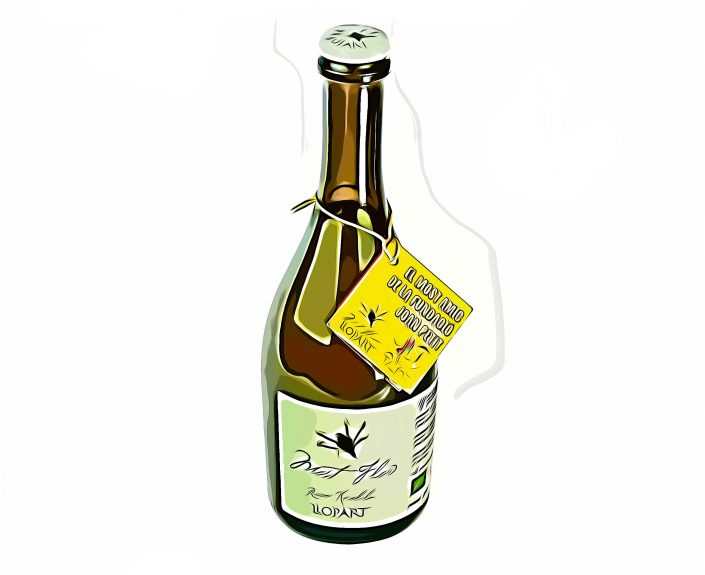
Must
A liquid vegetable, the pure essence of the fruit of the earth.
The candor of the xarel·lo variety. Grapes, in their purest form, become must.
The Vineyard
Xarel·lo from the vineyards of Joan del Pep (2007) in Clos dels Costers.
The Project
We are collaborating with the Friends of the Joan Petit Foundation for Children with Cancer by contributing the profits made by selling Most Flor by Llopart.
This foundation aims to raise funds for research, support and care for children with cancer and their families and is linked to the Hospitals of Sant Joan de Déu in Barcelona, Sant Pau and Bellvitge.
“A liquid vegetable, the pure essence of the fruit of the earth.”
